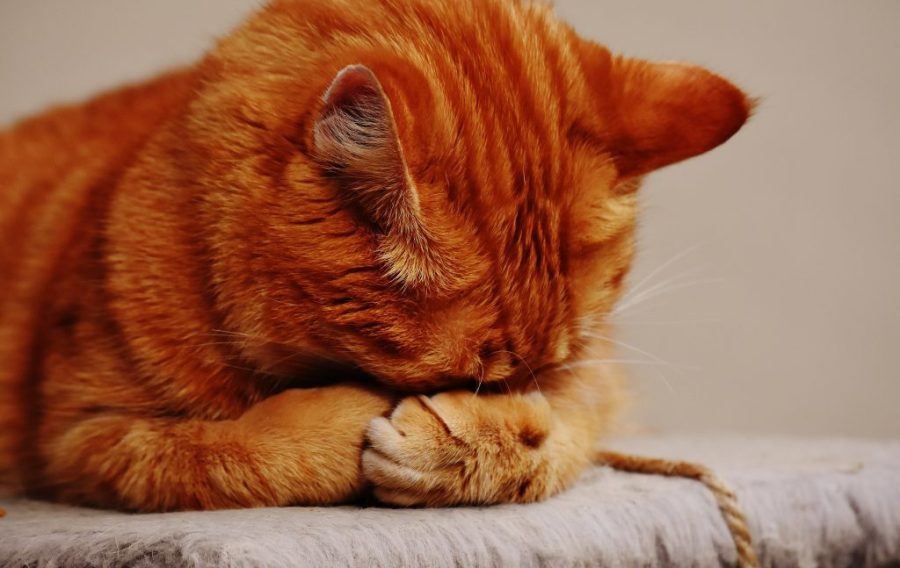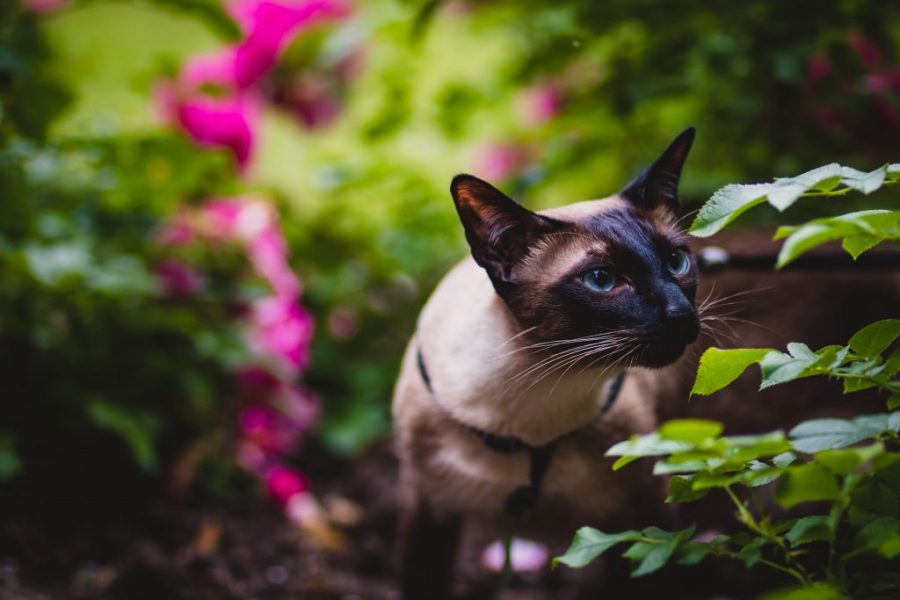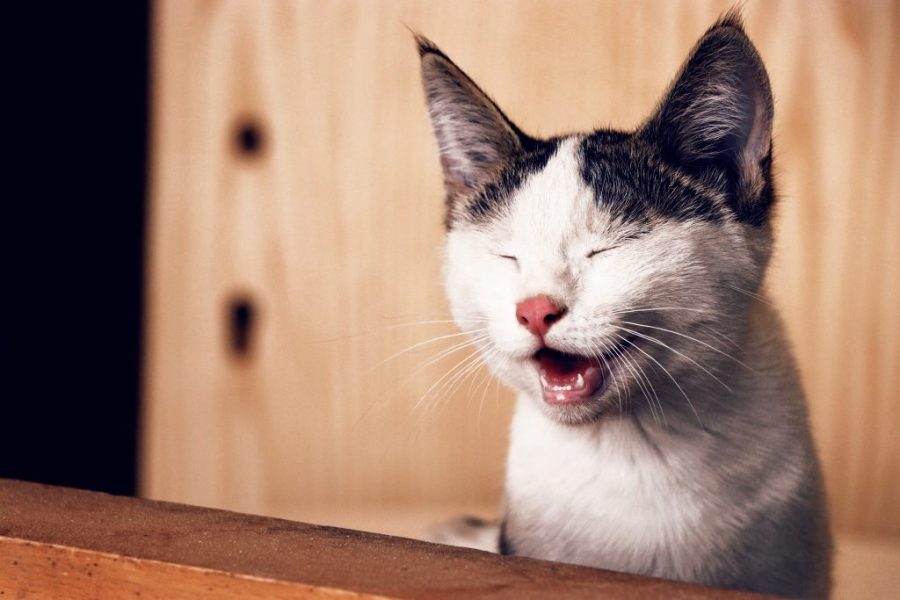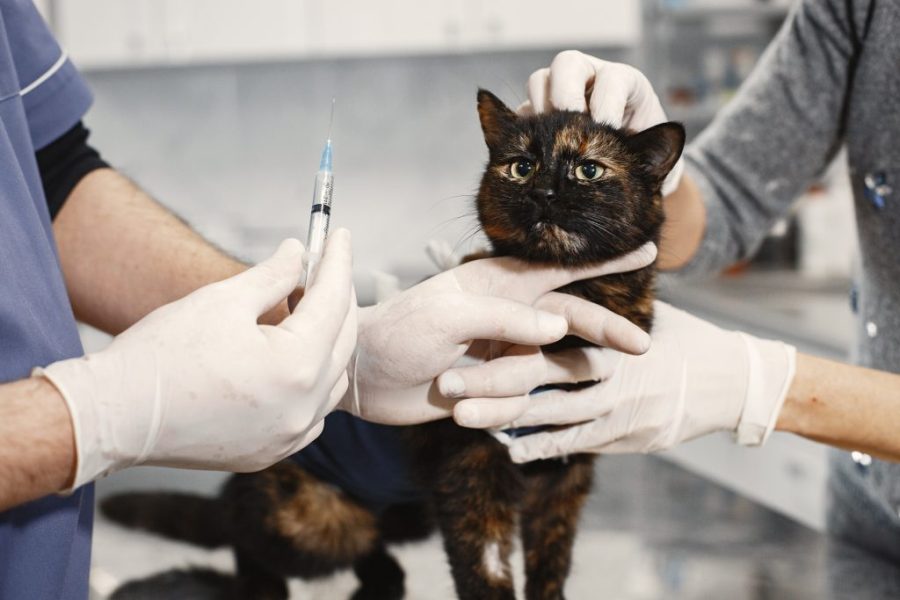How Long to Continue Antibiotic for Cat Pneumonia
Similar to humans, cats also sneeze for a variety of reasons. If you've noticed that your feline friend is sneezing more frequently than usual lately, you might be wondering why.
There are a multitude of reasons that your cat might be sneezing. It's important to isolate the reason this is occurring in order to know how to properly treat it, so that should be your first step. There are about a billion reasons why this could happen, so it's hard to know where to start. Luckily, we have you covered with this comprehensive guide.
As always, if you're seriously concerned about your cat's health, you should take them to the vet for personalized medical attention immediately.
Reasons Cats Might Begin Sneezing
If you're searching for the reason why your cat is sneezing, you're going to have to go through a process of elimination. There are a lot of potential reasons that your cat might be experiencing this.
The most direct way to find out why your cat is sneezing is by simply taking them to see the vet. This might feel excessive if you're not sure it's a severe issue, but it's a simple and quick way to get the answer you're seeking.

If you visit the vet and your cat is sneezing excessively, your vet will try to figure out what's causing this by reviewing your cat's symptoms. One of the leading causes of sneezing in felines is infection.
In order to effectively rule that out, your vet might take a swab and send it out to see what the results are. Another main reason that cats experience sneezing is because they've inhaled something that irritated them or they're allergic to something in their environment – very similar to people.
As mentioned earlier, sneezing in felines is often linked to an infection. Often, this means an upper-respiratory infection. These are usually more frequently found in younger cats or kittens, such as ones that are coming to your house from an animal shelter. Nevertheless, any cat can get this type of respiratory infection.
If your cat has an upper-respiratory infection, you can expect for this infection to last them anywhere between 7-21 days, but if it's an uncomplicated case, 7-10 days is the average.
Some viral infections can lead to sneezing in cats. These include:
- Feline Calicivirus: This virus can impact your cat's respiratory abilities, but mouth ulcers are the most common way it manifests itself. This illness can even cause pneumonia.
- Feline Herpes Virus: This type of viral infection is caught from exposure to other infected cats. When a cat is stressed, there might be a flare-up. This virus, which is not contagious to humans, has to be treated to control the symptoms.
When your cat has one of these — or any — infections, this can mean that they're more likely to develop other respiratory problems. This can ultimately lead to sneezing.
These are not the only two viral infections that can lead to sneezing. There are a host of other viruses that can manifest themselves as excessive sneezing, so it's best to keep an eye out. These viruses include:
- Chlamydia
- Feline infectious peritonitis
- Feline Immunodeficiency Virus
- Feline leukemia
- Mycoplasma
- Bordetella
The sooner you seek treatment for your cat if you fear they have one of these ailments, the more likely your cat is to make a full and complete recovery.
Allergens or Other Irritants Can Cause Feline Sneezing
Another common but less serious reason your cat might be sneezing is due to allergens or irritants in their environment. This is more likely the case if your cat only sneezes every once in a while instead of constantly. In order to figure out if this is what's causing your cat's distress, you can try to notice patterns about when the sneezing occurs.

Every cat is unique and therefore, what's an irritant or allergen to one might not be for the next. Here are some common allergens that might be causing your feline friend to sneeze:
- Perfume
- Candles
- Smoke
- Cat litter – specifically the dust-creating type
- Pest sprays
- Environmental irritants such as dust, pollen, or mold
If you notice that your cat sneezes more when in the presence of one of these allergens, you can diligently find ways to ensure that your kitty avoids them. Still, cats sneeze less than human beings do because of allergens. It's possible, however, that this is responsible for the sneezing.
Other Reasons Your Cat Might be Sneezing
Of course, there are still other reasons that your cat is sneezing. If your cat recently got an intranasal vaccine, for example, that could be to blame. In this case, however, your cat shouldn't be sneezing for more than a few days.
In addition to this, cats might be sneezing to try to get rid of something that's in their nasal passage and blocking them. That is why it's important to take them to the vet to get things sorted out if you fear this is the cause.
Another potential cause is an infection or inflammation of their tooth root. This can actually cause drainage in the sinuses which can contribute to sneezing. Finally, it's possible that sneezing can be a sign of cancer, but this is pretty uncommon.
Symptoms
The most obvious sign that your cat is having difficulties with excessive sneezing is, well, excessive sneezing itself. That being said, depending on the cause of the sneeze, there might be other symptoms that manifest.

This is one of the reasons why it's crucial to take your pet's overall health into account. If you noticed sneezing began and so did several other ailments at the same time, it's worth your time to take your pet into the vet.
If your cat has any of these symptoms, it would be helpful to visit the vet to figure out what the root cause of the sneezing is.
- Discharge coming out of your cat's nose or eyes. It may appear yellow, green, clear, or even bloody.
- Coughing and swallowing repeatedly
- Lethargy
- Fever
- Dehydration
- Decreased appetite
How to Make Your Cat Stop Sneezing
The solution to helping your cat stop sneezing so much is going to depend largely on what the reason is for they're sneezing. If the cause of the sneezing is an infection, your cat will have to take antiviral medication or antibiotics, eye or nose drops, steroids, and might even need fluids if they're extremely dehydrated.
If your cat has a mild case, there are also steps that you can take to make your cat feel more comfortable. This can include using a humidifier. If your cat has polyps or there's a structural reason why your cat is experiencing this, they might have to get surgery to fix the problem.
When to See the Vet
If you have any suspicion that your cat has an infection or that the sneezing is caused by something more serious than an allergen, you should head to the vet. After all, peace of mind that your pet is safe and healthy is worth the trip.

Deciding if you have to see the vet is also highly dependent upon how often your cat is sneezing. If your cat is only sneezing every once in a while, keep an eye on them and monitor their symptoms for a few days. Once you have a better understanding of what's prompting the sneezing, you'll be prepared to make a decision if you have to see the vet or not.
On the contrary, if your cat is constantly sneezing, or sneezing up blood, it's time to get it checked out – right away! In addition, if your cat is having symptoms consistent with an infection while also sneezing, you should take particular care in getting them checked out.
Conclusion
If your cat is sneezing, the cause can be something relatively common, or it could be something more serious. The best thing to do is to make an assessment about how you want to move forward with treatment based on how often your cat is sneezing, if there are any other symptoms present, and how they're behaving overall.
Some common reasons that cats might begin sneezing is because they have an infection, are allergic to something in their environment, or have a blockage in their nasal passage.
Ultimately, if you want a definitive answer about what's causing your cat to sneeze, it's not difficult – or impossible – to get one. All you have to do is head over to your vet's office and get their opinion.
There are ways to make your cat stop sneezing, but that plan of treatment is going to depend largely on why they are sneezing in the first place. You can even use a humidifier for mild cases. In rare situations, your cat might need surgery or something more severe.
Your cat is a member of your family so taking care of their wellbeing is important. If they're sneezing more frequently than usual, figuring out why this is happening will ensure that they're healthy and happy and give you peace of mind.
SOURCES:
Why Cats Sneeze (pets.webmd.com)
Cat Sneezing: Does Your Pet Have a Cold? (bluepearlvet.com)
Overview of Feline Infectious Peritonitis – Generalized Conditions (merckvetmanual.com)
Source: https://www.reference.com/pets-animals/why-is-my-cat-sneezing?utm_content=params%3Ao%3D740005%26ad%3DdirN%26qo%3DserpIndex&ueid=83eb26e4-51d2-4433-a24d-caa5c35d7349
0 Response to "How Long to Continue Antibiotic for Cat Pneumonia"
Post a Comment